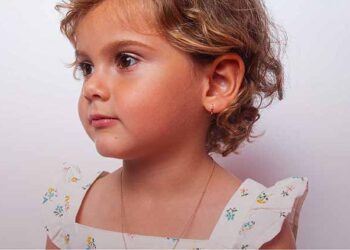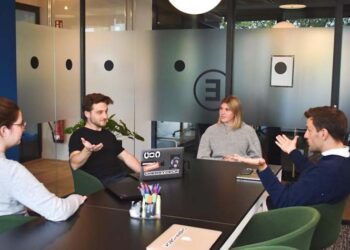
If you are an expectant parent who wants to go ‘green baby’ when your little bundle of joy is born, this is the information you need. Adopting an eco-friendly lifestyle has a lot of economic and environmental benefits for your family, and opting for eco-friendly/sustainable baby products is one way to go.
In today’s world where environmental concerns are on the increase, many parents are seeking ways to make more sustainable choices for their family. And there is no better time to become eco-friendly than when you are welcoming a new child. Not only will this save your family from overspending and reduce your environmental footprints but it can also help imbibe the culture of sustainability into your child as he/she grows.
There are many eco-friendly baby products available today but in this post, I will be sharing a few essentials you need to incorporate into your eco-friendly parenthood.
Why Consider Eco-Friendly Baby Products/Practices?
Almost two-thirds, 64%, of parents from a study, prefer products that are sustainably sourced and 60% of parents say that a company’s sustainability practices play “a large part” in what they actually purchase.[1]Parents and the Planet: How Sustainability Impacts Purchasing Decision – HP Sustainable Purchasing Pulse 2023 This is not just for the fun of it but because there are obvious and perceived benefits of going green.
Prioritizing eco-friendly baby products and practices can help reduce the impact of waste on global warming, and promote sustainability for current and future generations. Eco-friendly baby initiatives are also more cost-effective while also providing a safe and healthy environment for your baby.
Whether you are a new parent or not, it is never too late to consider going green. The benefits of being a sustainable parent are numerous, just to mention a few.
Top Eco-Friendly Essentials for New Parents
These eco-friendly essentials will include eco-friendly baby products and practices that will make your home and environment greener and more sustainable.
1. Exclusive breastfeeding
Exclusive breastfeeding (EBF) is also referred to as green feeding, and it involves feeding a newborn baby with breast milk only for the first six months of life. This entails that no other food additive or supplement, including water, is added to the infant’s feeding for the first six months of life.
Exclusive breastfeeding is the first eco-friendly essential to consider as a new or old parent. It saves baby feeding costs, reduces the stress of preparing infant feed on the nursing mother, as well as reduces greenhouse gases, and lessens the environmental impact of food alternatives.[2]Research on breastfeeding and climate change – Baby Friendly Initiative, UNICEF
EBF is safe, adequate, and highly beneficial to both mother and child within the first six months. It promotes mother-child bonding, acts as a form of natural contraceptive, and encourages proper gut flora development. Breastfeeding does not leave any residue, thus reducing carbon footprint and waste.
After the first six months, food should be supplemented with fortified infant feeds or cereals because breastfeeding may not be adequate for the growing infant.
2. Eco-friendly diapers
On the aspect of child diapers, we have moved from reusable and more sustainable options to disposable diapers. One of the reasons for this shift is convenience; Millenial and Gen-Z mothers now prefer disposable diaper options over reusable cloth diapers. Whereas cloth diapers are more sustainable than the former.
However, interestingly, new disposable diaper materials like bamboo diapers are better eco-friendly solutions than those made from synthetic materials. In addition to being highly durable, absorbent, and clean, bamboo diapers are highly biodegradable, and can significantly reduce our carbon footprint and the negative impact of waste accumulation.
3. Homemade baby food
When it’s time for your baby to start eating solid foods, making your own baby food can help reduce waste generation from packaging and also allow you to control the ingredients. You can be sure that your baby food is 100% organic when you make it yourself, instead of buying ready-made baby food which comes with packages that contribute to global waste.
Homemade baby food is a great idea for feeding your baby with adequate and healthy ingredients as well as being eco-friendly.
4. Organic baby skincare
Going organic to opt for chemical-free baby products is one essential way to get eco-friendly in your parenting. Not only will chemical-free products positively impact the environment, but you can also be confident that they will be safe for your child or children.
Thankfully, if you want to go fully organic in your baby skincare, there are a lot of baby care brands out there that care about sustainability. Brands like Earth Mama Organics and Weleda offer certified organic, chemical-free baby lotions, diaper creams, and soaps free from parabens, sulfates, and synthetic fragrances.
5. Hand-me-down clothes
Hand-me-down or thrift clothes are a way of getting more sustainable in baby care. Babies grow so fast during the first year. So, buying brand-new clothes today only to see that they are no longer in use the next month might be a bit wasteful and non-ecofriendly.
Instead, hand-me-downs or thrift clothes will still look fresh and cute on your baby because they are usually lightly used. They save you costs and are also a more eco-friendly option than the former.
6. Cloth wipes
Just like diapers, disposable wet wipes do a good job cleaning your baby but they also contribute to environmental waste. This is where reusable cloth wipes come in.
If you don’t mind, you can wash cloth wipes and reuse them again and again. But if you are not in for the stress of re-washing cloth wipes, shop for a brand of wet wipes that practices sustainability in their business practices. For example, using wipes made from biodegradable materials or recycled fibers can significantly minimize environmental impact.
7. Eco-friendly baby bottles and pacifiers
Baby pacifiers made from natural rubber or other biodegradable materials are safer for both babies and the planet. Brands like Natursutten and Hevea make natural rubber pacifiers free from Bisphenol A (BPA), Polyvinyl chloride (PVC), and phthalates, making them eco-friendly options.
Similarly, glass or stainless steel baby bottles are highly durable and chemical-free. Unlike plastic, these do not leach harmful chemicals when subjected to heat. Popular eco-friendly baby bottle companies include Lifefactory and Pura Kiki.
8. Wooden toys
Toys made from sustainably sourced wood or recycled materials are safer and more durable than plastic toys. Opting for wooden toys instead can help promote eco-friendly playtime for your kids.
9. Organic cotton bed sheets
Bedding made from organic cotton or bamboo reduces exposure to pesticides and chemicals often used in non-organic cotton processing and production. These organic eco-friendly baby products are free from harmful dyes and chemicals, making them ideal for sensitive skin and eco-conscious parenting.

10. Compostable disposable bibs
This is similar to eco-friendly diapers or baby wipes. Compostable bibs, though disposable, are also biodegradable, making them eco-friendly baby products for new sustainable parents. This means they minimize waste compared to traditional plastic-lined bibs.
Several bib-producing brands are promoting environmental sustainability. An example is Bumkins.
Final words
Individuals, families, and businesses are becoming eco-friendly today. The world is becoming increasingly aware of the problems of environmental pollution and global warming, which means it will not be out of place to adopt eco-friendly baby care practices.
This post explores some eco-friendly baby essentials for new parents in 2025. Comment if you need any further clarification on any of the eco-friendly baby products discussed above.

















